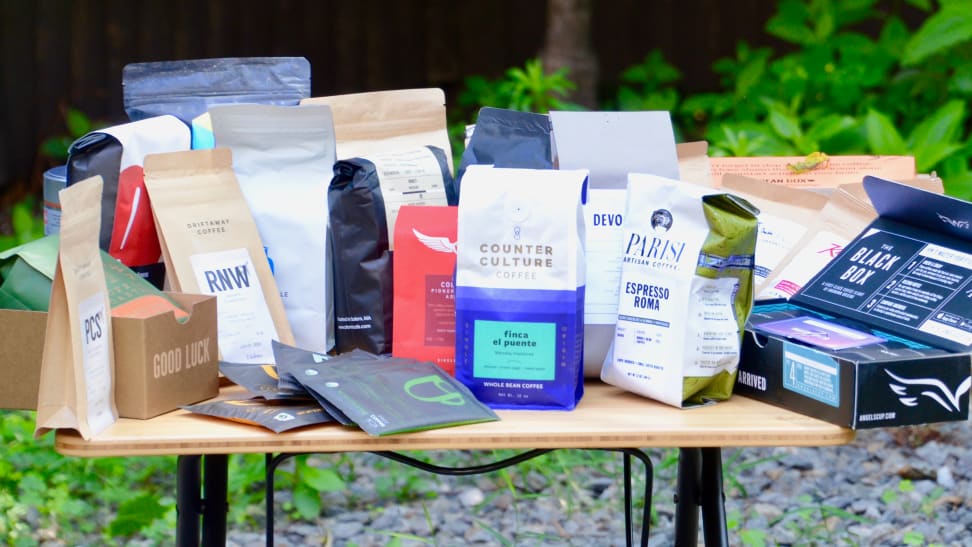 — Recommendations are independently chosen by Reviewed’s editors. Purchases you make through our links may earn us a commission.
— Recommendations are independently chosen by Reviewed’s editors. Purchases you make through our links may earn us a commission.If you're the kind of person who owns a gooseneck kettle and weighs out coffee in grams, chances are you're constantly on the hunt for the best beans. That's where coffee subscriptions—like our favorite from Counter Culture (available at Counter Culture Coffee)—fit in. These services can deliver a constant stream of new and interesting beans right to your door, and the best of them tailor your deliveries so you’ll always get coffee you’ll love.
But there's no one-size-fits-all. Whether you prefer a specific roaster like Blue Bottle, Stumptown, or Verve, or perhaps you want a service that collects coffee from independent roasters, you have options to choose from. For the truly adventurous and coffee-obsessed, some services even provide blind tastings designed to help you expand your palate.
In our first round of testing, we considered a total of 27 different subscription services and ultimately tried seven of them, each of which take a slightly different approach to delivering fresh coffee to your doorstep. When we revisited some of the coffee subscriptions for our latest round, we compared notes from the previous testing and added nine newcomers in the ranking. All of the services offer delicious coffee, but some definitely go above and beyond.
Here are the best coffee subscriptions we tested, in order:
- Counter Culture
- Angels' Cup
- Blue Bottle
- White Tale
- Driftaway
- MistoBox
- Devoción
- Intelligentsia
- Trade Coffee Co.
- Atlas Coffee Club
- Phil & Sebastian
- Stumptown
- Bean Box Co.
- Free Coffee Box
- Craft Coffee
- Illy
- Nomad Coffee Club
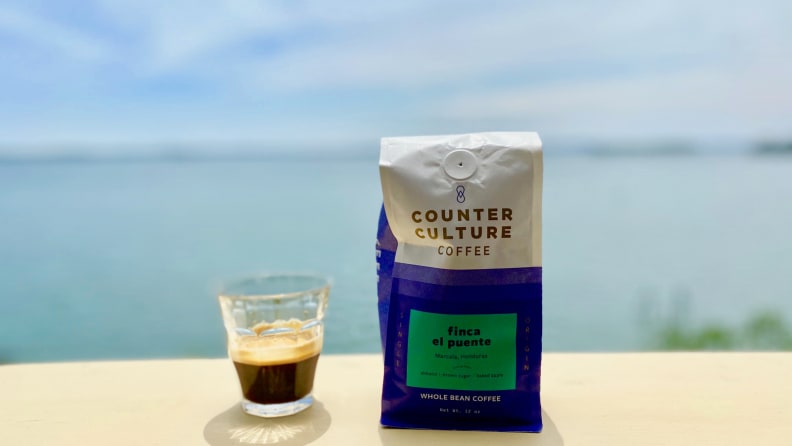

Counter Culture is a huge name in specialty coffee. Their operation spans from wholesale to retail, allowing them to deliver their freshly-roasted beans in the shortest amount of time possible with responsive customer support. They’re also transparent about their beans, with a label that includes origin (if it’s a blend, they’ll include all the varieties in one bag), altitude, roasting date, and variety. Their offerings change constantly, covering a range of coffee varieties for subscribers who are looking for new beans. That’s why we think they’re the best coffee subscription service for most people.
When it comes to customization, you can choose your blends based on the tasting notes they provide, or you can choose single-origin beans that they switch up every four weeks. The packaging is minimal, but it tells you everything you need to know about each bag you receive. For a reasonable price, we think Counter Culture offers the best way to get fresh, single-origin beans from a coffee subscription.
Pros
-
Short off-roast time
-
Affordable
-
Transparent business practice
Cons
-
Lack of roasters selection
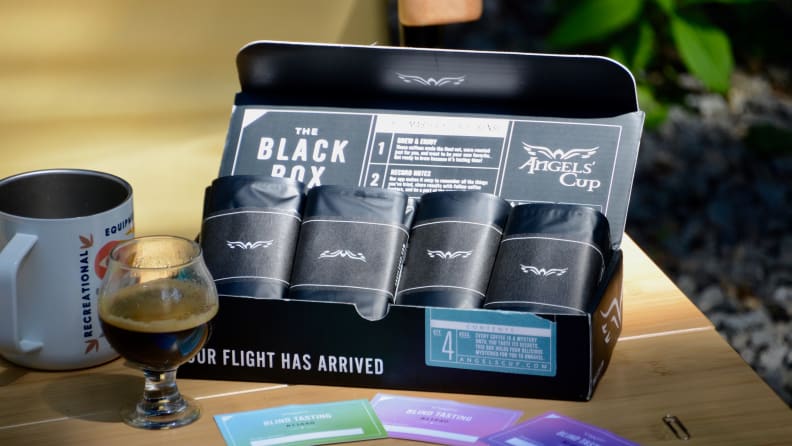

Angels' Cup is unlike any other subscription we tested. Rivals give you a quiz to figure out your preferences, then try to deliver coffee that suits your tastes; bags arrive with explanatory cards, tasting notes, and stories about the farmers and washing stations that produced the coffee. These presentations can be impressive, but the information colors your opinion of the coffee before you even taste it. You read "notes of tangerine" and boom, your tongue almost can't help but detect faint notes of citrus.
With Angels' Cup, your olfactory senses do the heavy lifting. If you choose the company's "Black Box" or "Cupping Flight" options, coffees arrive in sets of four black bags differentiated only by four-digit lot codes. You brew each coffee, plug the lot code into the Angels' Cup app (available for iOS and Android), and begin your tasting. The app takes you step by step through the process, asking what aromas and flavors you can discern and your impressions of the coffee's body, acidity, and overall taste. Once you've submitted your rating, you can compare it against the roaster's own tasting notes and comments from other subscribers. The app is slickly designed, and the tasting format is a great way to develop your palate.
That's why Angels' Cup is a great gift for both burgeoning and long-time coffee lovers. It's not a great subscription if you just want to get a lot of high-quality coffee delivered to your door, but if you want to really explore what coffee can taste like, there's no other service we found that comes close to delivering the same variety or guided appreciation. But if you would prefer a more conventional subscription, Angels' Cup can do that, too. Select the "All Stars" option and you'll get a single bag of the previous week's best coffee, as judged by other users.
Pros
-
Interactive blind tasting experience
-
Adventurous coffee offerings
Cons
-
Not enough customization
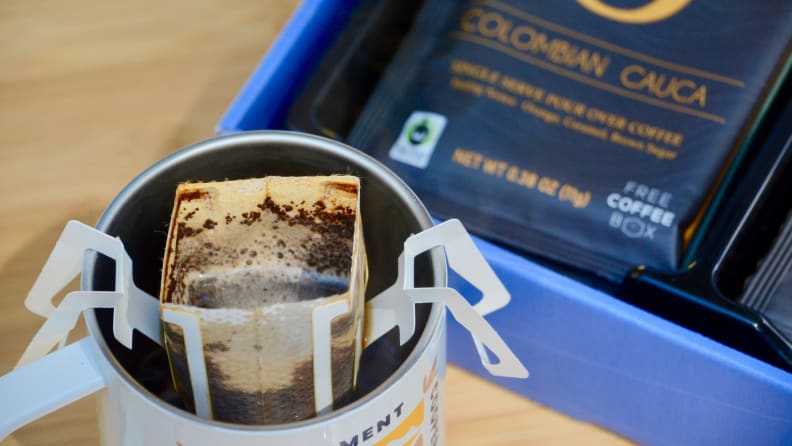

Free Coffee Box is very different from other coffee subscriptions that we’ve tested—their individually packaged ground coffee with filters allows people to make pour-over coffee on the go. Each box brings you 18 total bags, six of each variety, sealed in filters and ready for consumption. This type of single-use pour-over coffee first emerged in Japan, where consumers demand portability without sacrificing quality.
If you aren’t familiar with single-use pour-over coffee, the process is quite simple: Tear open the top of the filter, expand the paper anchors so the filter bag sits steadily atop a mug, and you’re ready to pour over hot water to brew the perfect cup. This is perfect for camping and on-the-go brewing when you don't have access to grinders or coffee makers.
Although the concept is nothing new, the quality of the coffee received high marks—despite being ground and individually packaged, each bag produced consistently tasty coffee and had its roasting date printed so subscribers can keep track of its freshness. Although Free Coffee Box isn’t cheap compared to their rivals, their subscriptions do include shipping.
Pros
-
Convenient to use
-
Detailed tasting notes
-
Fast shipping
Cons
-
No customization
How We Tested
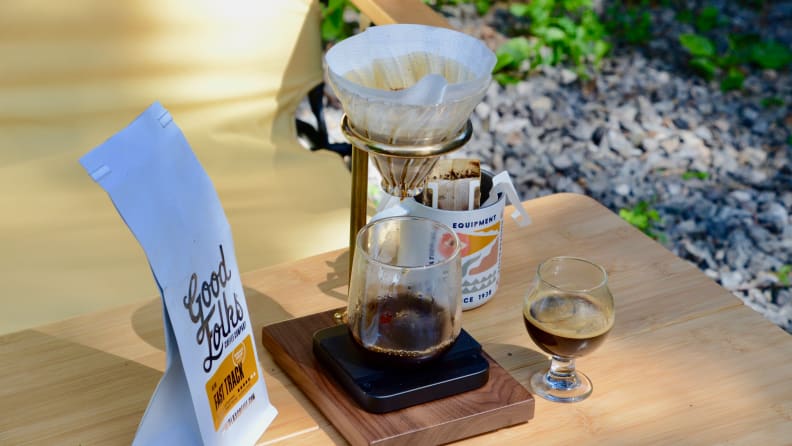
We looked at off-roast time, kept logs of delivery dates, and drank lots of coffee to see which subscription service reigns supreme.
The Testers
I'm Ben Keough, and I've been testing and writing about consumer tech and home goods for more than a decade. I previously served as Reviewed's Editor in Chief of News and Features, where I covered everything from new oven announcements to cutting-edge developments in digital camera sensors. I also owned and operated the number-one rated specialty coffee shop in Da Nang, Vietnam's third-largest city. There, I converted my love for drinking coffee into a passion for making coffee, and learned what it takes to produce a perfect cup. I visited coffee farms, participated in cuppings, and selected beans for commercial use.
And I’m Valerie, the staff writer for Kitchen and Cooking at Reviewed. I’ve tested the best coffee makers and espresso machines, and written about fun coffee drinks you can make right at home. From novice coffee drinker to sophisticated coffee gear tester, my journey through the coffee world makes me a suitable candidate for judging these beans. I can explain the ins and outs of each service to help you make the right choice.
The Tests
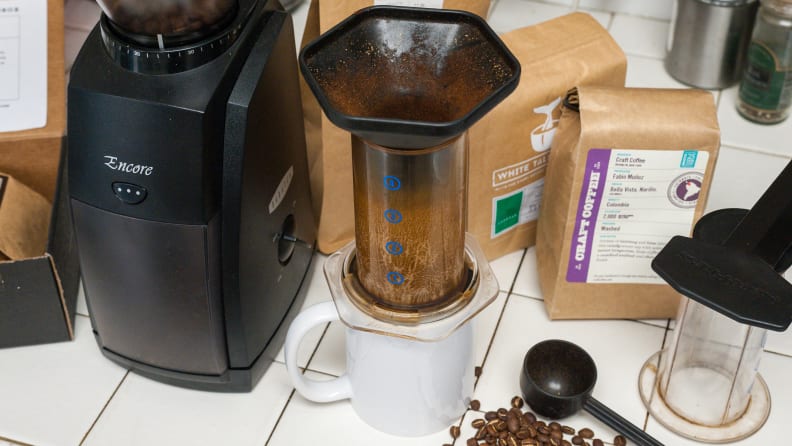
We got to enjoy a lot of great coffee while testing for this roundup.
It's difficult to scientifically test the quality of coffee, since taste is ultimately subjective. With that in mind, we didn't rate these services on the quality of the coffee they delivered (although all of them delivered very good to excellent coffee, according to our palates). However, there are still plenty of factors that make one coffee subscription service superior to another.
Off-roast time—the amount of time that elapses between roasting and delivery—is incredibly important. Since coffee begins to lose flavor and aroma almost immediately after roasting (even in a sealed bag), quick delivery is essential if you want to taste each bean at its peak. So we kept detailed logs of roast, shipping, and delivery dates, which gave us a good picture of how quick and reliable each service is overall.
We also tested to see how customizable the subscription is, and how well it tailors subsequent deliveries to your taste. Ideally, a subscription service should learn what you like and don't like, and after a while deliver perfect matches on a regular basis. Some services go further in this regard than others, and some—like Angels' Cup—use an entirely different approach that completely bypasses user feedback.
Customer service is also key, so we sent a question to each company and kept track of how long it took them to respond and how polite, personable, and informative their replies were. we took stock of the instructional material included with each shipment. Some subscriptions provide only the bare-bones stats for each coffee—country, varietal, tasting notes, and altitude—while others go much deeper, detailing the stories of the farmers who grew the coffee, the history of the region, and the sourcing process.
For each subscription we tested, we signed up anonymously (to prevent the companies from treating us differently than regular customers) and received two rounds of deliveries, to ensure that the results were repeatable and to test whether the service learned from our feedback.
Subscription Pricing
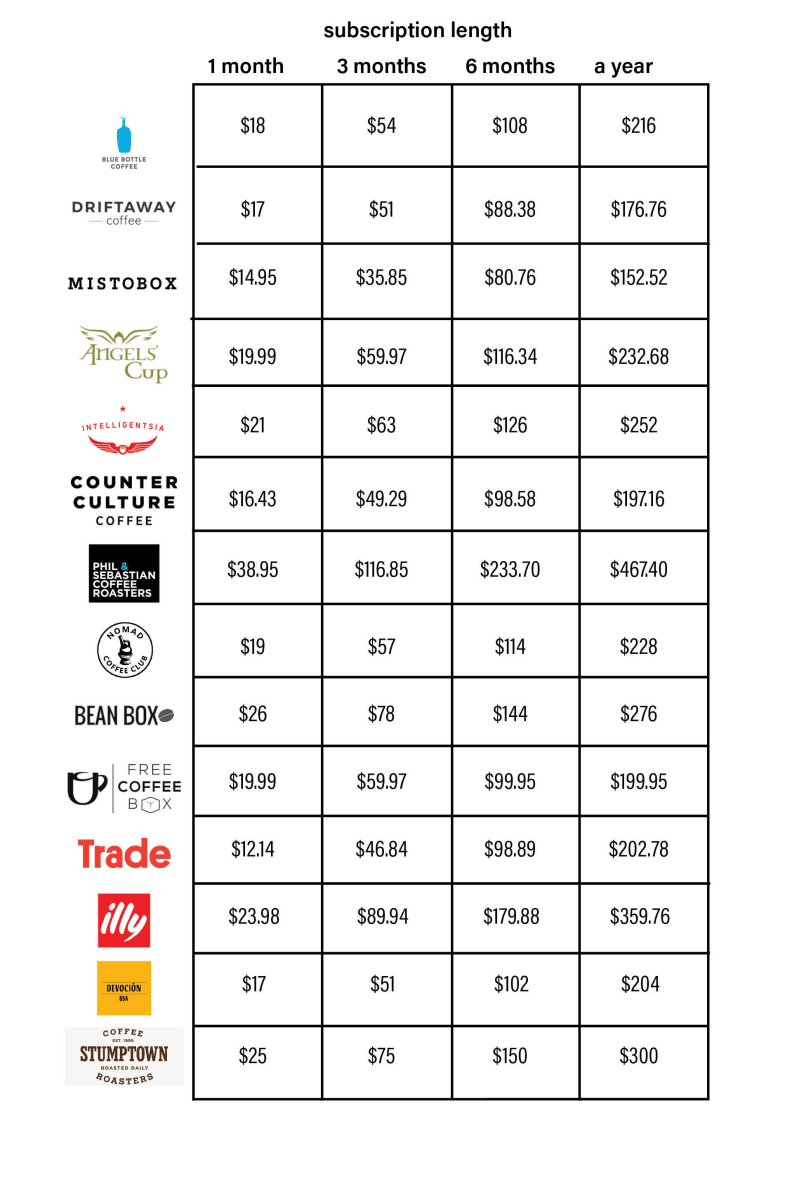
Pricing varies widely between subscriptions. Some offer discounted rates for customers who pay up front for a number of deliveries in advance. Others offer gift subscriptions that are sometimes (but not always!) less expensive than per-delivery orders.
In the chart below, we break down the typical cost for each subscription mentioned in this guide for single deliveries, plus three months, six months, and 12 months of deliveries at the most advantageous rate.
Over the years, we’ve noticed some price fluctuations and updated the chart accordingly. Blue Bottle, Angels' Cup, and many other services have dropped in price, likely to remain competitive in an increasingly crowded market, whereas Driftaway and White Tale have raised their prices but have started covering shipping fees.
What’s Specialty Coffee?
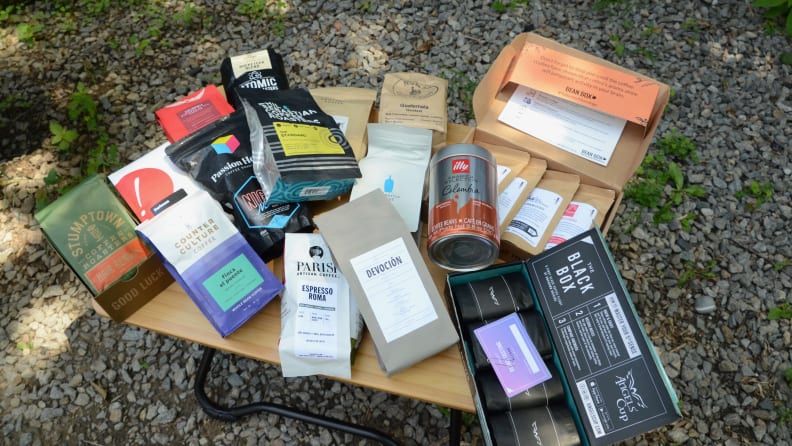
If you want to explore different varieties of coffee, specialty coffee may be right for you.
“Specialty coffee” is the buzzword that many popular coffee clubs like to use—but what exactly is it?
The term “specialty coffee” was coined in 1974 by industry advocate Erna Knutsen in an issue of Coffee & Tea Trade Journal to describe the highest grade of coffee beans produced in micro-climates that, accordingly, produce the best flavors. Specialty coffee first became popular in Australia, though in recent years it has been gaining popularity in the Americas, too. Industry trade group Specialty Coffee Association sets the standard for specialty coffee at every stage of production, including water quality, brew strength, and allowable bean defects.
Unlike corporate coffee buyers that source coffee beans on an industrial scale, specialty coffee distributors usually buy from small-scale growers or grower cooperatives, and provide a higher degree of transparency to consumers.
Single-Origin vs. Blend
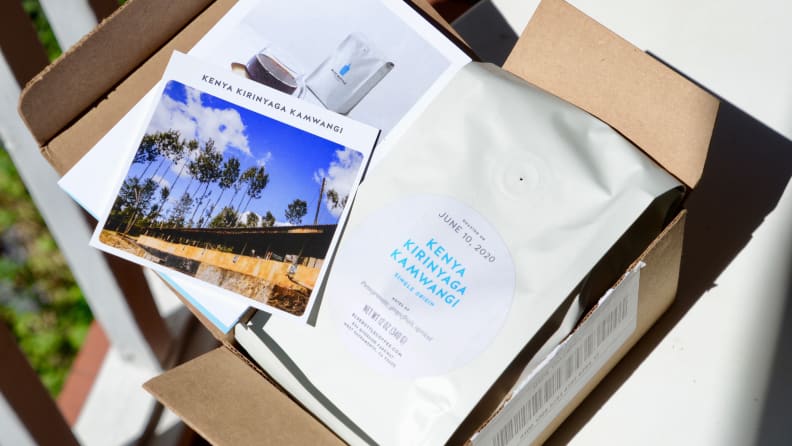
Some coffee subscription services provide detailed information about the beans.
Make no mistake, we think blends are the most economical choice when it comes to day-to-day coffee consumption. However, if you’re interested in the nuances of flavor, exploring single-origin may help you refine your palate. If you’re paying less than $20 per 12-ounce bag, you can usually expect blends that contain more than one variety of beans. Highly graded varieties, like Bourbon, Caturra, as well as the rarest Maragogipe, will cost you a lot more money—I wouldn’t recommend consuming them on a daily basis.
Typically, the most sought-after beans are single-origin coffees with their names or growing regions labeled. Some famous varieties, such as Bourbon, are vulnerable to coffee leaf disease and therefore yield low volume—which is why they’re priced higher than the less susceptible varieties such as Caturra, Catimor, or other hybrids.
Understanding this can help you choose your coffees wisely, and to avoid overpaying for average blends.
However, some beans that are labeled as “single-origin” can be a blend, as one geographical location can grow more than one variety of coffee. To know what exactly you’re paying for, look for varieties or ask customer support for the exact varieties in the bag.
Other Coffee Subscriptions We Tested
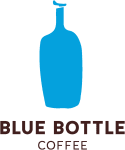
Blue Bottle is one of the best-known names in specialty coffee, and for good reason: their beans are incredibly high quality. Like many other big-name roasters—including Intelligentsia, Stumptown, and Counter Culture—Blue Bottle offers a recurring delivery service. But unlike other services, it doesn't offer an in-depth taste quiz before subscribing. You simply choose between a blend assortment, an espresso assortment, or a single origin assortment. (There is a very in-depth 10-question quiz that helps recommend one-off purchases, however.)
That said, with the single-origin subscription, I still got delicious coffee that perfectly suited my tastes. Like other artisan roasters, Blue Bottle tends toward the super-light end of the scale, so the Rwanda Nyamasheke Mwasa and Peru Puno Sandia Valley I tried both delivered the delicately floral aromatics I crave in my morning cup. If you do get a coffee you don't like, you can provide feedback to adjust your taste profile. Blue Bottle simply asks you if you'd want to drink the coffee again. And you can reply with an equally simple "Yes," "Maybe," or "No." We like their prompt shipment—after placing an order, they can ship the beans on the same day they roast them.
Pros
-
High-quality coffee
-
Fast shipping
-
Roasted to order
Cons
-
No in-depth quiz

When you think of craft coffee, Denver probably isn't the first city that comes to mind. Nevertheless, that's where White Tale Coffee roasts its carefully selected beans. The subscription itself is relatively simple and stripped down, beginning with the five-question quiz that gets you started. White Tale just asks for your preferred roast profile, your three favorite flavors out of eight options, your grind preference, how often you want coffee delivered, and how often you want to pay. You can also leave a note asking for specific flavors, delivery dates, and other custom requests, which is pretty neat.
White Tale shipped both orders just a day after roasting, but deliveries took a little while—a trend we've noticed among subscriptions offering free shipping. Still, at $20 per delivery it's among the cheaper subscription services, and the six days it took to get the coffee from the roaster to my doorstep still left it tasting plenty fresh. When I reached out to customer service, the company's CEO Nicolás Anzellini responded directly, and showed real interest in my question. On the downside, though, it took him a few days to reply. It's also unfortunate that there's not a built-in feedback system to better tailor coffees to your taste, but it seems likely that White Tale would be able to do so manually if you sent in your notes via email.
Pros
-
Short off-roast time
-
Neat quiz design
Cons
-
Slow shipping

If you want a coffee subscription that seems to really care about you and your tastes, Driftaway is a great choice. Setting up your subscription is easy: unlike other services, Driftaway doesn't ask you to complete a survey or quiz to get going. Instead, your first shipment is a four-bean "tasting kit," similar to the flight you get from Angels' Cup. Your feedback on those first four coffees sets your taste profile, which is then refined with ratings of subsequent coffees.
In my testing, the profile was extremely accurate: I like light, fruity but not necessarily citrusy coffee, and after my tasting kit, the first coffee I got was an Ethiopia Yirgacheffe that hit all the right notes: stone fruit, subtle spice, Earl Grey tea. Bullseye.
Driftaway is notably welcoming in other ways. I sent a question to support and got a very informative reply from one of the founders, rather than some chatbot or subcontracted CSR. And the company provides excellent tracking updates, including emails when your coffee is being roasted, when it ships, and even when it's delivered. Both of my orders shipped within 24 hours of roasting, and I received them within four days—twice as long off-roast compared to MistoBox, but still very fresh. Driftaway is also one of the most affordable subscriptions we tested at $16 per shipment with free shipping.
Pros
-
Extremely accurate tasting notes
-
Helpful customer support
-
Affordable
Cons
-
Slow shipping


Conceptually, MistoBox splits the difference between many other coffee subscriptions—and it's all the better for it. The company doesn't roast its own beans, but instead sources them from top roasters all across America, who ship the fresh-roasted coffee directly to your door. It doesn't ask you to participate in blind tastings, and it doesn't give you a detailed quiz up front. It's all about balance.
Where MistoBox really shines is in its efficiently designed website and deep customization. If you want to, you can sign up for a scheduled delivery of curated espresso blends or single origin coffees and just let it ride—no input is necessary beyond the initial question of what kind of roast you like. But if you want to get a little more involved, you can rate each coffee you receive to refine future shipments or—if you want to take the future into your own hands—curate your own list of upcoming beans with a feature MistoBox calls the "Brew Queue." The number of choices is dizzying, and there are plenty of user reviews to guide your way thanks to a very active community.
In this round of testing, we noticed Blue Bottle and Counter Culture are both faster than MistoBox, our former winner, in terms of shipping and roast-to-arrival time.
Pros
-
Deep customization
-
Efficient customer support
Cons
-
Slow shipping

Devoción is one of the newer independent roasteries that have joined the game, introducing a wide selection of Colombian coffees to North America. Like Canada-based Phil & Sebastian, Devoción sources green beans from Central and South America, in order to preserve the freshness of the beans. In addition to roast date, Devoción also labels their green date—the time when coffee seeds outer parchment gets removed and then flown to their roastery in Brooklyn, which further indicates how fresh the beans are. For the price (between $17 to $22 per 12-ounce bag), it’s one of the best bargains we've found.
Although we appreciate the freshness, Devoción has limitations—the selection of coffees available to subscribers are Colombian only. Don’t get me wrong, I love Colombian coffee—and it may take me years to try every variety grown in this country—but if you want to try out beans from around the world, Devoción may not be the best choice.
Pros
-
Transparent business practice
-
High-quality coffee
Cons
-
Limited selections

Intelligentsia is one of the independent roasteries that have gained a cult following across the country. They offer a wide variety of specialty coffee, but you may need some coffee knowledge to find the beans that suit your preferences. There are only two options—you can either let them choose the coffee for you, or you can pick the exact varieties that you like.
For those who are new to coffee, it would be helpful if they offered an interactive quiz to navigate their big selection of coffee offerings—we appreciate the details (region, elevation range, processing and drying methods, and harvest time) listed, but I had to Google some technical terms to finally decide on which coffee I wanted to order.
What we like about Intelligentsia is that they provide the option to grind the coffee beans to the size of your liking (from cold brew to Kalita no. 5) in case you don’t have access to a grinder. Overall, we think their box is more suitable for people who already know what exactly their preferences are.
Pros
-
Roasted to order
-
Fast shipping and delivery
-
Detailed coffee information
Cons
-
Lack of customization

Similar to MistoBox, Trade Coffee connects subscribers with independent roasters across the country. Their focus is more on the roastmanship as opposed to the beans themselves. In our experience, some roasters include the specific varietal information and growing altitude of each bag, but some leave it blank, which means you’ll have to guess what kind of coffee you’re getting, and tasting notes can sometimes be misleading.
However, as we said with MistoBox, Trade Coffee may be suitable for you if your goal is to try different coffee from independent roasters before settling on one. Their lineup also includes some of the most popular roasters, like Onyx and Tandem.
Pros
-
Affordable
-
Fast shipping and delivery
Cons
-
Product quality varies

Lots of coffee subscriptions have a gimmick, and Atlas Coffee Club's is actually pretty cool: each delivery brings you a carefully selected single-origin coffee from a new country. You may have noticed that certain countries (Ethiopia and Kenya, most notably) tend to dominate the artisan coffee scene, so this is a great way to try out beans from less well-known coffee producing countries (like Mexico and Peru).
That said, the service didn't really impress us much. The customization options available during account setup are weak at best, only allowing you to choose between two roast options ("light to medium" and "medium to dark") and two grinds (whole bean or ground). That's especially problematic since the grind should really be customized depending on your preferred brewing method—you wouldn't use an espresso grind in a Chemex, for example. The whole beans I got were tasty, but not among the best in the test group, and they were definitely roasted darker than I would have preferred. Atlas also doesn't provide roast dates, so there was no way to tell how old the beans were.
Pros
-
Brings coffee from less well-known regions
-
Fast shipping
Cons
-
Weak customization setup

We loved Phil & Sebastian’s offerings as they include many rare beans, like the Maragogipe from Panama. Unfortunately, those rare finds are only available for separate purchase, not in the subscription box (at least not in the two boxes we received). For new subscribers, you can either choose between South American and African coffees, or you can let the roaster pick one for you. In each box, you’ll receive one 12-oz bag of coffee of your choice.
We like that they source green beans directly from coffee growers, which helps preserve their freshness, but the long wait time between roast date and arrival date kind of undermines the whole point of getting raw beans with parchment on. They’re also the most expensive subscriptions we’ve tested. For equal or lower price, you can find high quality beans elsewhere.
Pros
-
High-quality coffee
-
Roasted to order
Cons
-
Pricey
-
Slow delivery

For subscription coffee, Stumptown doesn’t offer single origin options—but their price point is still on the high end of the spectrum. Regardless, you’ll need to pick your own coffee or choose the roaster’s pick, which isn’t helpful if you have preferences for how you like your coffee. You can’t customize the grind according to your preferred brewing method, which makes it less user-friendly. If you’re looking for blends with interesting flavor profiles, there are other more affordable options.
Pros
-
High-quality coffee
-
Roasted to order
Cons
-
Pricey
-
Limited options

Bean Box started in Seattle, where specialty coffee shops are enjoying a boom. They source the beans from roasters in the Pacific Northwest, as they take pride in their roasting skills and expertise. However, the shipping may take longer for subscribers who don’t live close enough to the west coast. There are two options: Subscribers can either choose a sampler box of four 1.8-ounce bags or the 12-ounce Coffee of the Month bag, which is much more expensive than other coffee subscriptions for the same weight of coffee.
Pros
-
High-quality coffee
-
Roasted to order
Cons
-
Pricey

Delivering coffee since 2010, Craft Coffee is one of the oldest coffee subscription services around. In its time, it's received a lot of attention in best-of lists and gift guides. In my experience, however, it was outclassed by most of its competition.
Craft Coffee's focus is clearly on blends, which isn't what I was after for this guide. After digging a little deeper, I was able to uncover the $20 Roaster's Choice plan, which delivers light-roasted single origin beans as often as you'd like, but there's nothing you can really do to customize your taste profile. The coffees I received (one from Peru and another from Colombia) were tasty enough, but also among the oldest I received.
They shipped three days off roast and arrived another three days later. If you want to know a lot about the coffee you're drinking, Craft won't satisfy there, either. Where other subscriptions include colorful postcards with descriptions of the coffees and histories of the farms where they're grown, all you get with your Craft Coffee shipments are the vital stats, printed on the label on the bag itself.
On the plus side, customer service was polite and quick to respond to my queries, and it was easy to cancel my subscription.
Pros
-
Polite customer service
Cons
-
Slow shipping
-
Lack of coffee details

Illy is one of the largest coffee brands in the industry and has contributed to the world-wide popularity of espresso. Their founder, Francesco Illy, invented pressurized container packaging that preserved the freshness of roasted beans and allowed coffee to travel around the world.
As an espresso drinker myself, I tested Illy’s espresso bean delivery service to see if they were worth the subscription. Although their service is affordable, I wasn’t as impressed with the quality of their beans as I was with those from smaller roasteries. While the tin container was a ground-breaking invention at the time, the one-way degassing valve has proven to be the most effective when it comes to preserving the freshness nowadays, which is why all the other beans we’ve tested came in brown bags fitted with valves.
Pros
-
Fast shipping and delivery
-
Affordable
-
Consistent quality
Cons
-
Off-roast time not labeled
-
Lack of coffee details

Nomad doesn’t provide any information about your bag’s roasting date, so we couldn’t determine how fresh our coffee was. But they do include very detailed information about where the coffee beans grew and how the beans were processed on their website, which caters to subscribers who are familiar with the roaster and their coffees. But if you’re looking for new varieties and tasting notes to explore every month, Nomad doesn’t offer a big selection of different beans.
Nomad promises their beans are roasted to order and ship within 48 hours of purchase—but we still experienced shipping delays, likely due to the fact that we live on the east coast and they’re based in Los Angeles. If you live somewhere close to Nomad, chances are, you may get fresher beans than we did.
Pros
-
Fast customer support
Cons
-
Slow shipping
